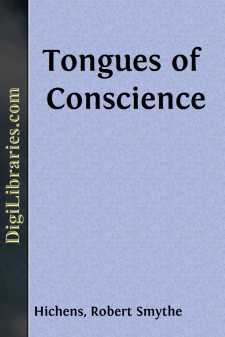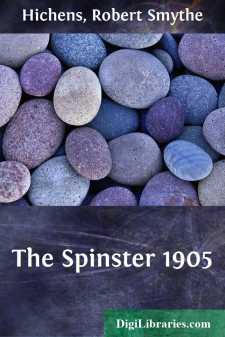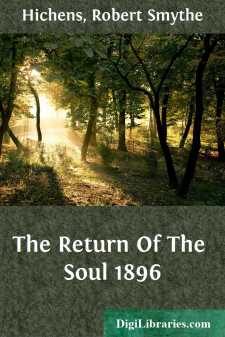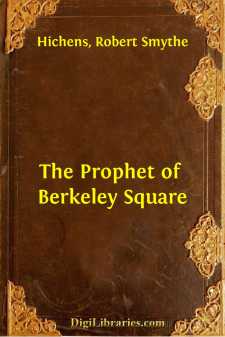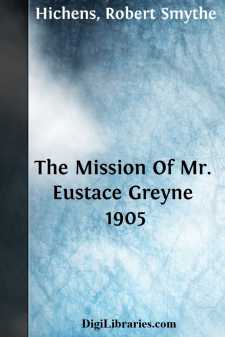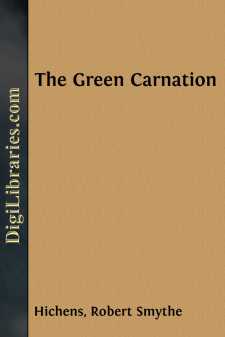Categories
- Antiques & Collectibles 13
- Architecture 36
- Art 48
- Bibles 22
- Biography & Autobiography 813
- Body, Mind & Spirit 142
- Business & Economics 28
- Children's Books 14
- Children's Fiction 11
- Computers 4
- Cooking 94
- Crafts & Hobbies 4
- Drama 346
- Education 46
- Family & Relationships 57
- Fiction 11829
- Games 19
- Gardening 17
- Health & Fitness 34
- History 1377
- House & Home 1
- Humor 147
- Juvenile Fiction 1873
- Juvenile Nonfiction 202
- Language Arts & Disciplines 88
- Law 16
- Literary Collections 686
- Literary Criticism 179
- Mathematics 13
- Medical 41
- Music 40
- Nature 179
- Non-Classifiable 1768
- Performing Arts 7
- Periodicals 1453
- Philosophy 64
- Photography 2
- Poetry 896
- Political Science 203
- Psychology 42
- Reference 154
- Religion 513
- Science 126
- Self-Help 84
- Social Science 81
- Sports & Recreation 34
- Study Aids 3
- Technology & Engineering 59
- Transportation 23
- Travel 463
- True Crime 29
Robert Smythe Hichens
Robert Smythe Hichens (1864-1950) was an English novelist, journalist, and music critic, best known for his satirical and supernatural fiction. His novel "The Green Carnation" (1894) gained notoriety for its thinly veiled depiction of the relationship between Oscar Wilde and Lord Alfred Douglas. Hichens' works often explore themes of decadence and the occult, with "The Garden of Allah" (1904) being one of his most successful novels, adapted into several films.
Author's Books:
Sort by:
PART I.THE RAINBOW. In London nightfall is a delirium of bustle, in the country the coming of a dream. The town scatters a dust of city men over its long and lighted streets, powders its crying thoroughfares with gaily dressed creatures who are hidden, like bats, during the hours of day, opens a thousand defiant yellow eyes that have been sealed in sleep, throws off its wrapper and shows its elaborate...
more...
CHAPTER I IN a large and cool drawing-room of London a few people were scattered about, listening to a soprano voice that was singing to the accompaniment of a piano. The sound of the voice came from an inner room, towards which most of these people were looking earnestly. Only one or two seemed indifferent to the fascination of the singer. A little woman, with oily black hair and enormous dark eyes,...
more...
CHAPTER I "We want a new note in English music," said Charmian, in her clear and slightly authoritative voice. "The Hallelujah Chorus era has gone at last to join all the Victorian relics. And the nation is drifting musically. Of course we have a few composers who are being silly in the attempt to be original, and a few others who still believe that all the people can stand in the way of...
more...
I had arrived at Inley Abbey that afternoon, and was sitting at dinner with Inley and his pretty wife, whom I had not seen for five years, since the day I was his best man, when we all heard faintly the tolling of a church bell. Lady Inley shook her shoulders in a rather exaggerated shudder. "Someone dead!" said her husband. "It's a mistake to build a church in the grounds of a...
more...
THE PYRAMIDS Why do you come to Egypt? Do you come to gain a dream, or to regain lost dreams of old; to gild your life with the drowsy gold of romance, to lose a creeping sorrow, to forget that too many of your hours are sullen, grey, bereft? What do you wish of Egypt? The Sphinx will not ask you, will not care. The Pyramids, lifting their unnumbered stones to the clear and wonderful skies, have held,...
more...
Tuesday Night, November 3rd. Theories! What is the good of theories? They are the scourges that lash our minds in modern days, lash them into confusion, perplexity, despair. I have never been troubled by them before. Why should I be troubled by them now? And the absurdity of Professor Black's is surely obvious. A child would laugh at it. Yes, a child! I have never been a diary writer. I have never...
more...
CHAPTER I MRS. MERILLIA IS CARRIED TO BED The great telescope of the Prophet was carefully adjusted upon its lofty, brass-bound stand in the bow window of Number One Thousand Berkeley Square. It pointed towards the remarkably bright stars which twinkled in the December sky over frosty London, those guardian stars which always seemed to the Prophet to watch with peculiar solicitude over the most...
more...
In St. Petersburg society there may be met at the present time a certain Russian Princess, who is noted for her beauty, for an ugly defect—she has lost the forefinger of her left hand—and for her extraordinary attachment to the city of Tunis, where she has spent at least three months of each year since 1890—the year in which she suffered the accident that deprived her of a finger. What that...
more...
Mrs. Eustace Greyne (pronounced Green) wrinkled her forehead—that noble, that startling forehead which had been written about in the newspapers of two hemispheres—laid down her American Squeezer pen, and sighed. It was an autumn day, nipping and melancholy, full of the rustle of dying leaves and the faint sound of muffin bells, and Belgrave Square looked sad even to the great female novelist who...
more...
He slipped a green carnation into his evening coat, fixed it in its place with a pin, and looked at himself in the glass, the long glass that stood near the window of his London bedroom. The summer evening was so bright that he could see his double clearly, even though it was just upon seven o'clock. There he stood in his favourite and most characteristic attitude, with his left knee slightly...
more...


